Graham Reid | | 2 min read
Douglas Traherne Harding
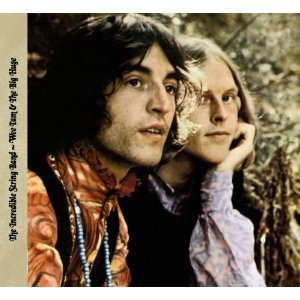
Sometimes for my own private amusement I will sing aloud The Incredible String Band's The Son of Noah's Brother in its entirety. All 16 seconds of it.
The lyrics run, "Many were the lifetimes of the son of Noah's brother, see his coat the ragged riches of his soul".
And that's it: a lovely descending melody and not a wasted note or word.
Quite what it means is anyone's guess, but that wasn't the point of the ISB whose gentle folk music arrived at the peak of the hippie era and found its zenith on this double album (which was confusingly released as two separate discs in places like New Zealand).
Out of Scotland, the ISB -- Mike Heron and Robin Williamson -- delivered a line of exotic mysticism rooted in the British folk tradition but married it with an instrumental exotica which even now would have world music enthusiasts rushing to the encyclopedias of musical instruments.
Sitar? That was easy. Between them Heron and Williamson also played gimbri, sarang, Chinese banjo, oud, kazoo, mandolin, harpsichord, bass, Irish harp, whistles, washboard, flute, violin and vibraphone as well as percussion instruments . . . and of course guitars and piano.
For Wee Tam and The Big Huge however they kept things rather spare, mostly it is just their vocals supported guitars, sitar, bass, piano and percussion.
Theirs was a world where visionary William Blake walked alongside Indian mystics, and where a cosmic revelation could be found on a mountain peak or in the discovery of natural simplicity in a complex world.
Merlin is here, so too is Lazarus, the Holy Grail, Richard the Lionheart, the cobbler, the maiden, the mender and the maker . . .
Yes, it certainly sounds rather drippy and by the time the Seventies rolled around my guess is most of their fans were hiding ISB albums behind their Spooky Tooth or T.Rex.
Yet Robert Plant of Led Zeppelin (a man not afraid to show his inner Tolkein) has always acknowledged the influence on LedZepp's acoustic side of these two folk singers whose very gentleness seemed to make sense of their puzzling lyrics. They sang with such earnest seductivity (with a large dollop of tongue-in-cheek humour) that they pulled you in.
With their archaisms and odd imagery (which the Fleet Foxes have adopted) they wrote and sang songs which became instantly memorable: "The dust of the rivers doth murmur and weep . . ."; "The greatest friend I have in life has brought me here to dwell . . . "; "Captured by Hitler with Oliver Twist in the tower, guards say here's pens and paper, just sit down and work for an hour . . ."; "My cousin has great changes coming, one day he'll wake with wings" . . .
These are striking opening lines and their often conversational tone made them even more persuasive.
As with Wordsworth (and more recently Yoda), they would have you believe there was a spirit which rolled through all things.
This was folk music one step beyond Donovan at his most allusive, a realm occupied by mythical beasts and mystic priests, and -- yes, to be honest -- often enhanced by a smoke, some incense and mulled wine.
It all sounds alarmingly mushy and pastoral in these days of massive power chords, teen-angst marketed into a style, and bump'n'grind MTV.
But the Incredible String Band broke past the limitations of nostalgic British folk and took it some place of its own creation where you become an inhabitant of a benign, utterly psychedelic cosmos created by two men in a small cottage north of Glasgow.
There was nothing like them at the time and, try as Devendra Banhart might, there has been nothing since.
Remarkable music and a door into a very different world.
.
These Essential Elsewhere pages deliberately point to albums which you might not have thought of, or have even heard . . .
But they might just open a door into a new kind of music, or an artist you didn't know of. Or someone you may have thought was just plain boring.

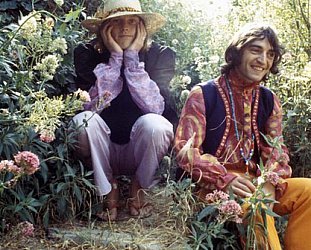
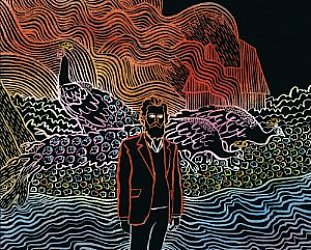
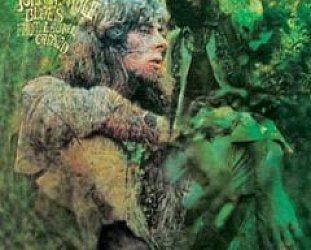
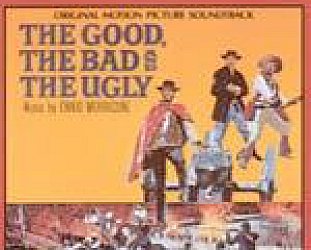


Fraser - Aug 26, 2025
They are such a mad, in a good way band. I bought The Hangman's Beautiful Daughter, from one of my teachers at secondary school over fifty years ago. It always makes me happy to play it again. It's playful and fun. I couldn't be without it.
Savepost a comment